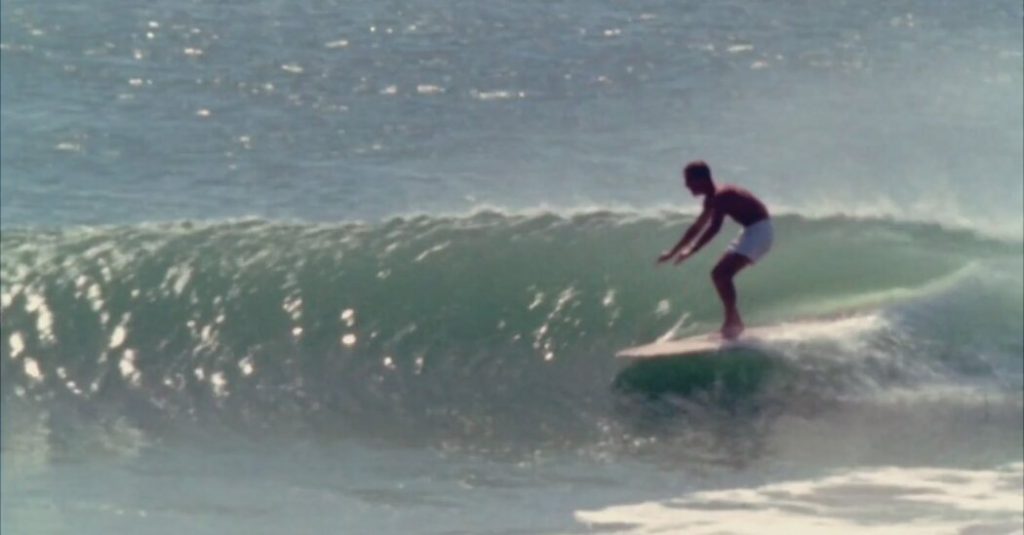Mike Hynson, a surfing icon and star of the seminal 1966 documentary “The Endless Summer,” passed away at 82, leaving behind a legacy as a gifted surfer, innovative board shaper, and embodiment of the sport’s rebellious spirit. His life, a blend of daring wave riding and counter-cultural exploration, irrevocably shaped surfing’s image and inspired generations of wave riders. Hynson’s journey began in the early 1960s, a time when surfing was often perceived as a fringe activity. He quickly distinguished himself with his fearless surfing style, becoming one of the first non-Hawaiian surfers to conquer the formidable Pipeline in Oahu, Hawaii. This daring feat cemented his reputation as a true surfing pioneer, pushing the boundaries of the sport and inspiring others to follow in his wake.
Hynson’s breakthrough came in 1963 when filmmaker Bruce Brown invited him to join a globe-trotting quest for the perfect wave, a journey that would become the foundation of “The Endless Summer.” Alongside fellow surfer Robert August, Hynson embarked on an epic adventure spanning across Senegal, Ghana, South Africa, Australia, Tahiti, New Zealand, and Hawaii. This odyssey, fueled by a youthful spirit and a thirst for undiscovered breaks, captured the essence of surfing’s allure and propelled it into the mainstream consciousness. The film immortalized Hynson’s surfing prowess and solidified his status as a counter-culture icon. His sun-bleached hair, slicked back in a distinctive style, became synonymous with the surfing lifestyle and inspired countless imitations.
The making of “The Endless Summer” was an adventure in itself. Funded on a shoestring budget, the trio faced numerous challenges, from navigating unfamiliar cultures to smuggling precious film footage past watchful customs officials. Hynson, ever the maverick, even financed his portion of the trip by appealing to a board maker he had previously wronged. His rebellious streak, however, also manifested in his clandestine transport of drugs, a reflection of the era’s counter-cultural currents and his own youthful indiscretions. The film, initially met with skepticism by distributors, became a surprise hit, grossing over $30 million and cementing surfing’s place in popular culture.
Following the success of “The Endless Summer,” Hynson delved deeper into the counter-culture movement, immersing himself in the world of the Brotherhood of Eternal Love, a group known for its psychedelic experimentation and drug smuggling operations. This period saw Hynson’s increasing involvement with LSD and other substances, experiences that would later inform his next cinematic venture, “Rainbow Bridge” (1972). This film, a blend of surfing, mysticism, and drug culture, featured a climactic Jimi Hendrix concert and further intertwined Hynson’s image with the era’s counter-cultural ethos. The film also subtly referenced his involvement in smuggling, showcasing his willingness to push boundaries both in and out of the water.
Despite the film’s celebratory depiction of drug use, Hynson’s own struggles with addiction eventually took their toll, leading to a downward spiral marked by periods of incarceration. He openly acknowledged his struggles, describing his descent into addiction and the difficult journey back to sobriety. This tumultuous period contrasted sharply with his earlier triumphs and served as a stark reminder of the dangers of substance abuse. However, with the support of loved ones, he managed to overcome his addiction and rediscover his passion for surfboard crafting. This resurgence marked a pivotal turning point in his life, demonstrating his resilience and ability to rebuild after facing adversity.
In his later years, Hynson reflected on his impact on surfing culture, pondering whether “The Endless Summer” had created the dream of the perfect wave or simply captured a pre-existing yearning within the surfing community. Regardless of the answer, his contribution to the sport remained undeniable. He had not only ridden waves with exceptional skill and grace but had also embodied the spirit of adventure and rebellion that defined surfing’s appeal. His legacy continues to inspire surfers worldwide, reminding them of the enduring power of the ocean and the pursuit of the ultimate wave.


